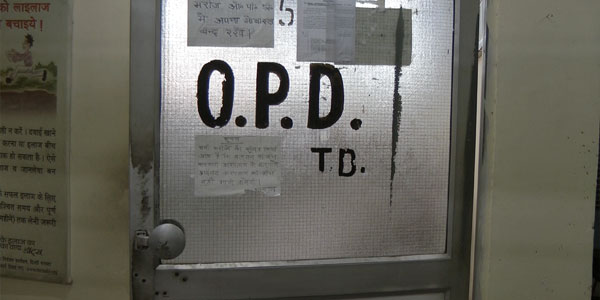
TB, and in particular multidrug-resistant (MDR) TB, cannot be fought by the government alone. The government has to create a synergy and working relationship with the private sector if the disease has to be fought.
Here is an eight-point programme to create such a synergy:
1: Need for a uniform daily regimen
Presently there cannot be a synergy between the Revised National TB Control Programme (RNTCP) of the government and private sector doctors and hospitals because they follow completely different regimens for treating TB. While the private sector follows a regimen where medicines for TB are administered daily, the government’s RNTCP follows the alternate dosage regimen. This regimen has been abandoned worldwide, for it is known to create drug resistance. The RNTCP must change to a daily regimen; only then can there be an alignment between the private sector and the government’s RNTCP. It will then be possible for the patients to migrate easily from the private sector to the government’s RNTCP programme and vice versa.
2: Use the diagnostic capacity of the private sector
The RNTCP would be a fantastic programme if all patients have drug-sensitive, i.e., normal TB. But what if the patient has MDR TB and is resistant to the two main drugs for the treatment of normal TB? There is no diagnostic provision in the RNTCP to detect this at the first stage itself. Patients are subjected to the two main drugs for two to six months and if this is ineffective, they are put on another line of drugs meant for patients with a history of TB. Only after this trial and error method which lasts for a year, the RNTCP tests most unresponding patients for MDR TB. This is horrific as while the incorrect treatment is being given, the organ affected by TB deteriorates faster by the resistant TB bacilli. Moreover, the patient is infecting others with MDR TB. So this delay of diagnosis creates more MDR patients. The key is to provide a diagnostic facility to detect MDR TB at the first stage itself. All those patients whose sputum is positive for TB should be tested for MDR TB then itself. The government does not have adequate diagnostic facilities at the moment and while it is setting up this capacity, it should partner with accredited private labs.
3: Regulate the private sector
The private sector is largely unregulated and this is one of the greatest causes for the creation of MDR TB. According to Dr Zarir Udwadia, one of the foremost TB specialists in the country, a Hinduja Hospital study in Mumbai’s Dharavi slum showed that out of 103 doctors surveyed, only three had provided the correct prescription for TB. The others prescribed it in a way that made the patients’ health worse and even led to MDR TB. Some time back, the government made it mandatory for private doctors and hospitals to notify the government about TB cases. Many doctors are unaware of this and others use the argument of doctor-patient confidentiality not to notify. But surely notification is just one aspect of regulation, there are other areas which need to be regulated, like treatment protocols, migration of patients from private to government sector, etc. The government must start a dialogue with the private sector to work out a regulatory regime.
4: Mass awareness campaign on TB
We need a continuous and sustained mass awareness campaign through TV, films and other media to make the public aware of the symptoms of TB. We should widely circulate the dos and don’ts of treatment, how to avail of diagnostics and treatment, why it is important to complete the course. This will create the demand for TB treatment and help in regulating the private sector as well.
5: Bring down import duty on diagnostic equipment
According to Dr Naveen Dang, leading microbiologist from Delhi, the import duty of TB diagnostic machines is about 30%. This duty has to be removed so that there is a way to set up diagnostic centres which could bring down the price of testing.
6: Produce generic drugs for MDR treatment
India has the biggest base in the world for the manufacture of generic drugs. This manufacturing base can be used to stockpile generic medicines for the treatment of MDR TB. This can bring down the prices of drugs drastically.
7: Increase the health budget
Currently, India’s health budget is about 1% of our GDP. If the war against TB and MDR TB has to be won, then the health budget has to be increased to at least 3% of GDP, if not more.
8: Widest partnership with civil society organizations
The government must have the widest possible partnership with civil society organizations in order to get motivated Directly Observed Treatment, Short-course (DOTS) providers and to ensure that the right to food and the mid-day meal schemes are run without leakages to fight malnutrition.